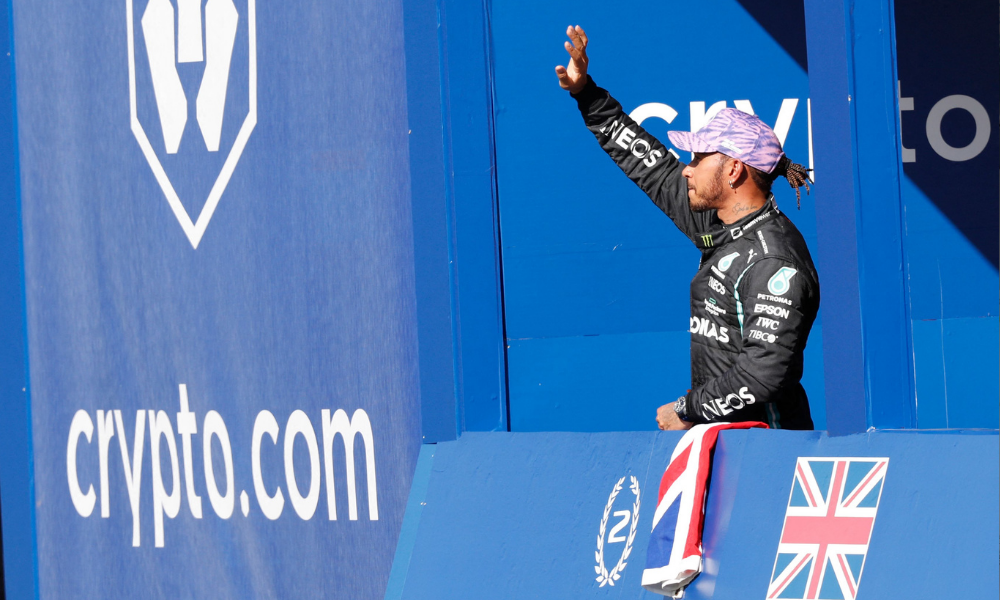Sponsorship is an important part of the sports business. So why has the recent spate of cryptocurrency sponsorship in sport left Giles Morgan feeling uneasy?
Giles Morgan explains why the recent spate of cryptocurrency sponsorship should serve as a reminder to rights holders to be mindful of who they take their money from in his monthly column for SportsPro, The Captain’s Broadside.
Regular readers of The Captain’s Broadside or subscribers to the international sports business podcast Are You Not Entertained will be aware that Giles Morgan has been bullish in the past three years about sponsorship investment in sports.
In the traditional funding architecture of sport, sponsorship has always been a core pillar, however it has historically been undervalued and misunderstood by both rights holders and brands alike.
Blockchain – A New Paradigm For Corporate Sponsorship
A corporate investment that drives and measures direct business sales, sponsorship’s true value has only just been discovered and appreciated.
Traditional rights holders have been selling the corporate marketplace a formulaic cake recipe largely built on spurious, assumption-based and imprecise television data.
In addition, the cake was spiced, lathered and drizzled with a dash of hyperbole and PR assumption: Finally, it was sprinkled with a magic dusting of corporate hospitality and access to VIPs.
Over the past decade, corporate governance, accountability, and regulation have become increasingly important. Almost overnight, sponsorship models looked fragile to the grey suits lurking in the sewers of company headquarters.
As a result, the dark forces of dystopia gathered in their legions to douse the flames of corporate frivolity.
As the knights of technology emerged from Silicon Valley to save the day, their digital wizardry provided a golden opportunity for rights holders to connect sponsors directly to their most valuable asset: their loyal fans.
Empirical data detailing demographics, geography, and socio-economics, in conjunction with a data and digital trail of how and when fans engage across multiple digital touchpoints.
Sports have adopted this data-driven approach as the new lingua franca. Now, rights holders have something tangible to sell – and it is much more valuable.
Even though the notion of sponsorship investment may finally be undergoing a major shift, rights holders and sponsors should still pay attention to the foundation stones and principles from the old school of thought.
The best marketing is a blend of science and art.
Although data provides the science so urgently needed to make a definitive and measurable case for business investment, the arts of sponsorship, honed over the last 50 years, are still extremely valuable.
The key is to understand human connection and the emotional connection between fans and their passions.
Sport and Blockchain: Creating an Emotional Connection

The most important sponsorship canon (no pun intended) is the emotional connection between two brands that can be made when they work together. An essential element of a successful sponsorship relationship is this kind of connection.
Marriages that create resonance that benefits and elevates both parties: And, most importantly, partnerships that resonate with and engage with the fan, the most important constituent of all.
The reason why I bring this up is because we have seen a number of crypto deals in sport in the past month. Today, crypto is the darling of the business pages.
For futurologists, it is the ultimate disruptor, a sector of growth that has either been adulated or scorned by economists and financiers alike. It is polemical. And still in the learning process.
It’s true that these new sectors are battling for sponsorship dollars in droves, with suitcases of cash (or even bitcoins, perhaps) from their investors. These are funds that are irresistible to an industry always hungry for revenue.
In an ever-growing tech world, rights holders have to carefully navigate these and other new brand segments when considering new partnerships.
In contrast, many of these companies are relatively young brands in new sectors with business models that are still undergoing testing, and the brands have little emotional resonance with consumers.
The truth is, many of these companies are still relatively new to the market, with business models that are still being tested and tweaked. In addition, they are also lacking in emotional connection and resonance with consumers.
In other words, we, the humble fans, are either unconvinced, undecided or sceptical about what these emerging industries are and who the right runners and riders are. And this is important to note.
The Philosophy of Sponsorship From A Crypto.com Arena Deal
Creating strong sponsorship is about building strong foundations. Building partnerships the fan can understand and is comfortable with. Building brands the fan trusts. Building authentic brands. Because sport fans hate inauthenticity.
A Crypto.com Arena deal recently announced in Los Angeles has been lauded by some and mocked by others since crypto is still in its infancy.
Furthermore, Manchester City’s failure to form a partnership with 3Key Technologies and FC Barcelona’s failure to form one with Ownix has created increased consumer uncertainty about the industry, damaging to both clubs.

Many people say that business hates uncertainty. However, fans hate it even more. These deals serve as a reminder to all rights holders of just how important it is to choose their partners wisely.
As a result, the industry needs to do a thorough assessment of risk when considering sponsorship partnerships and to actually perform due diligence.
The wise rights holders are those who understand that the most important relationship to have with fans is one that runs at an emotional and authentic level.
To that end, everything they do commercially has to be done with fans in mind, which means signing on with partners that are both selective and mindful.
Sports sponsorships have a long history of bringing negative attention to the rights holder. Many partnership structures are complex and unwieldy.
Several years ago, I took part in the Enjoy Jakarta HSBC Indonesian Open, a name that served no one well and was soon forgotten.
NASCAR once enjoyed the glorious name of the Goody’s Headache Relief Power 500. Perfectly apt – while it lasted. And then there are the partnerships that just bring in ridicule.
Two of my favourite golf tournaments from the past are the Cialis Western Open (never up, never in?) and the Waste Management Phoenix Open (a shit tournament?)
Soccer, unsurprisingly, contains many bizarre examples of unions misjudged: The Tax Slayer Bowl and the San Diego County Credit Union Poinsettia Bowl are great examples from the US as well.
It is crucial for rights holders to be mindful about who they get their money from. Customer loyalty, trust, and advocacy are the holy grails of marketers. Many sports have these elements embedded in their ecosystem by virtue of tradition and history.
In seeking out partners with shared values and goals, rights holders and sponsors alike will demonstrate their solidity and strength, and will earn the respect and loyalty of their fans as well.
It has been said that a man is known by the company he keeps. Aesop might have been referring to sport with this proverb.
Via this site.


